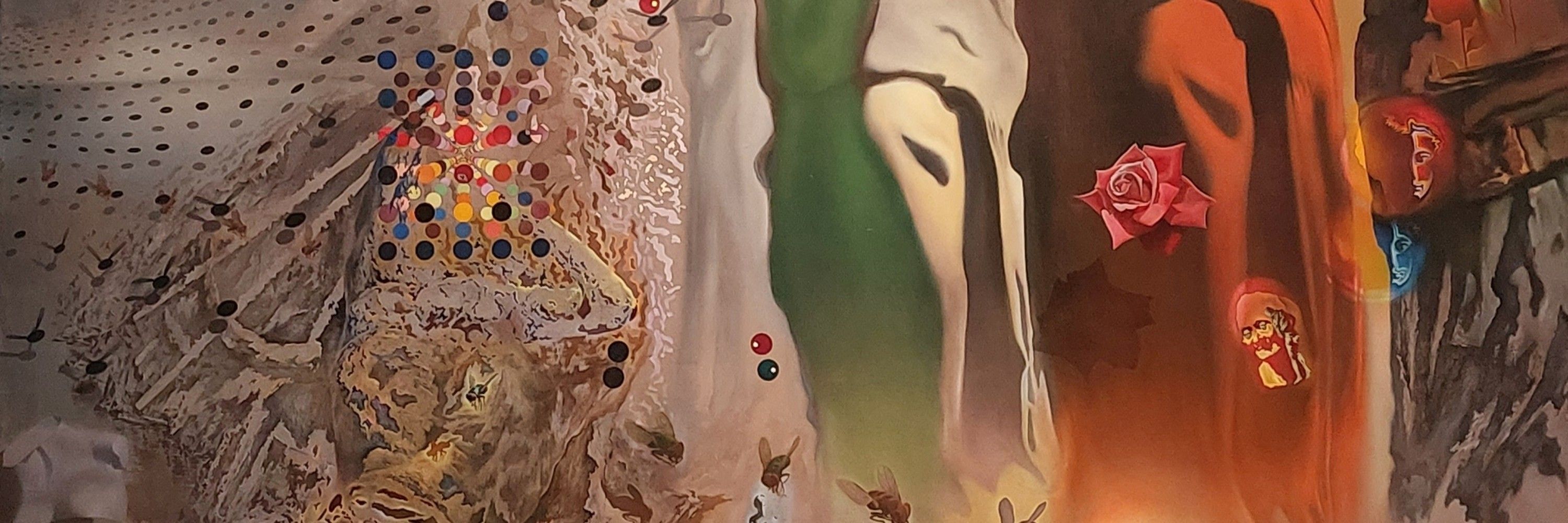
Katharina Duecker
@katduecker.bsky.social
comp neuro postdoc the Carney Insitute for Brain Science, Brown University | HNN developer | passionate about oscillatory dynamics and their role in neuronal computation 🧠
https://sites.brown.edu/stephanie-r-jones-lab/
https://sites.brown.edu/stephanie-r-jones-lab/
And a huge thank you to my other co-authors: Kim Shapiro, Simon Hanslmayr, Jeremy Wolfe, Yali Pan, Aleksandra Pastuszak and of course @olejensen.bsky.social for bearing with me over the past many years!
August 30, 2025 at 2:26 PM
And a huge thank you to my other co-authors: Kim Shapiro, Simon Hanslmayr, Jeremy Wolfe, Yali Pan, Aleksandra Pastuszak and of course @olejensen.bsky.social for bearing with me over the past many years!
If you have followed my work more or less closely you may remember that there was a previous version of this paper that did not account for t-o-t. A huge thank you to @benjamingriffiths.bsky.social & @ajquinn.bsky.social who helped with the GLM and pulled me out of my confound misery.
August 30, 2025 at 2:26 PM
If you have followed my work more or less closely you may remember that there was a previous version of this paper that did not account for t-o-t. A huge thank you to @benjamingriffiths.bsky.social & @ajquinn.bsky.social who helped with the GLM and pulled me out of my confound misery.
We hypothesized that high alpha power would be associated with reduced RIFT responses. However, we could not find a robust relationship between alpha power in the sensors showing the reaction time effect and RIFT. Maybe the effect is linked to holding the search template in VWM and not gain control?
August 30, 2025 at 2:26 PM
We hypothesized that high alpha power would be associated with reduced RIFT responses. However, we could not find a robust relationship between alpha power in the sensors showing the reaction time effect and RIFT. Maybe the effect is linked to holding the search template in VWM and not gain control?
What's more, comparison of the reaction time and time-on-task regressors suggest that the peak frequency and sensors driving the relationship may be different. We argue that this suggests two generators of alpha - one associated with search and one with fatigue/boredom!
August 30, 2025 at 2:26 PM
What's more, comparison of the reaction time and time-on-task regressors suggest that the peak frequency and sensors driving the relationship may be different. We argue that this suggests two generators of alpha - one associated with search and one with fatigue/boredom!
We show that alpha power negatively correlates with RT - higher alpha, faster responses. There was no difference in hit rate between high and low alpha, so participants were indeed better at the task!
August 30, 2025 at 2:26 PM
We show that alpha power negatively correlates with RT - higher alpha, faster responses. There was no difference in hit rate between high and low alpha, so participants were indeed better at the task!
We analyzed data from our previous publication, where we showed that the RIFT signal is modulated in line with a priority map, to boost targets and suppress distractors. rdcu.be/eDbHY
Here, we fit a GLM-spectrum to the pre-search interval, accounting for confounds of alpha and RT with time-on-task.
Here, we fit a GLM-spectrum to the pre-search interval, accounting for confounds of alpha and RT with time-on-task.

Guided visual search is associated with target boosting and distractor suppression in early visual cortex
Communications Biology - Magnetoencephalography in human participants paired with Rapid Invisible Frequency Tagging reveals that excitability in early visual cortex is modulated to boost targets...
rdcu.be
August 30, 2025 at 2:26 PM
We analyzed data from our previous publication, where we showed that the RIFT signal is modulated in line with a priority map, to boost targets and suppress distractors. rdcu.be/eDbHY
Here, we fit a GLM-spectrum to the pre-search interval, accounting for confounds of alpha and RT with time-on-task.
Here, we fit a GLM-spectrum to the pre-search interval, accounting for confounds of alpha and RT with time-on-task.
Huge thank you to my co-authors Kim Shapiro, Simon Hanslmayr, Jeremy Wolfe, Yali Pan, @benjamingriffiths.bsky.social and the best PhD supervisor @olejensen.bsky.social for bearing with me over the past many years. There will be a part 2 so stay tuned :)
June 11, 2025 at 8:40 PM
Huge thank you to my co-authors Kim Shapiro, Simon Hanslmayr, Jeremy Wolfe, Yali Pan, @benjamingriffiths.bsky.social and the best PhD supervisor @olejensen.bsky.social for bearing with me over the past many years. There will be a part 2 so stay tuned :)
If there is some science comm effort that tries to teach this I’d be happy to contribute. If not, I’d be happy to establish one! Potentially without a single host as the face of the show, but rather with many contributors. Would also reduce workload on the individual..
January 26, 2025 at 11:52 PM
If there is some science comm effort that tries to teach this I’d be happy to contribute. If not, I’d be happy to establish one! Potentially without a single host as the face of the show, but rather with many contributors. Would also reduce workload on the individual..
So critical! So many fitness, lifestyle & beauty influencers refer to papers to support their claims (also see Huberman’s success), but it takes years to learn how to read & understand a scientific paper. But this shows that there is a general interest in science and how it applies to our lives.
January 26, 2025 at 11:52 PM
So critical! So many fitness, lifestyle & beauty influencers refer to papers to support their claims (also see Huberman’s success), but it takes years to learn how to read & understand a scientific paper. But this shows that there is a general interest in science and how it applies to our lives.
Thank you! I didn’t realize there was a thread on this exact question! :)
January 26, 2025 at 11:32 PM
Thank you! I didn’t realize there was a thread on this exact question! :)
So I think gamma flicker response ≠ grating-induced gamma ≠ memory gamma ≠ evoked gamma. Probably all emerging from different neural circuits. Personally, I don’t know why it’s so important that the Alzheimer’s effects underlie oscillatory entrainment. Still compelling that the brain likes 40 Hz.
December 24, 2024 at 1:07 PM
So I think gamma flicker response ≠ grating-induced gamma ≠ memory gamma ≠ evoked gamma. Probably all emerging from different neural circuits. Personally, I don’t know why it’s so important that the Alzheimer’s effects underlie oscillatory entrainment. Still compelling that the brain likes 40 Hz.
There is a concern about whether gamma flicker does propagate beyond V1 @mariusschneider.bsky.social but Ben Griffiths has found some effects of gamma flicker on memory performance www.biorxiv.org/content/10.1...

Imperceptible gamma-band sensory stimulation enhances episodic memory retrieval
Enhanced gamma activity (30-100Hz) coincides with the successful recall of episodic memories, but it remains unknown whether this oscillatory activity is a cause or a consequence of the retrieval proc...
www.biorxiv.org
December 24, 2024 at 1:01 PM
There is a concern about whether gamma flicker does propagate beyond V1 @mariusschneider.bsky.social but Ben Griffiths has found some effects of gamma flicker on memory performance www.biorxiv.org/content/10.1...

